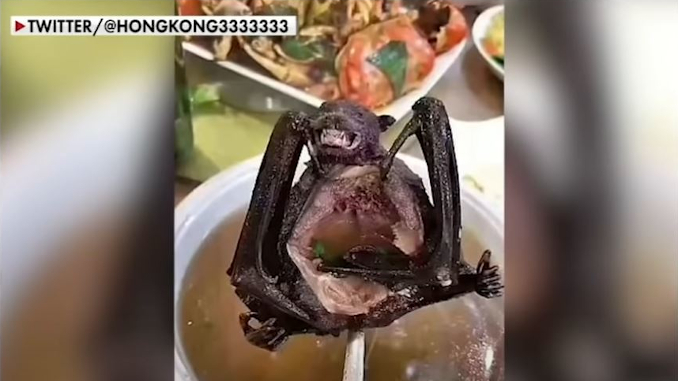
By AFP Staff
A new report by the Department of Homeland Security (DHS) that was leaked to Associated Press (AP) charges China with hiding the true extent of the novel Covid-19 epidemic caused by the virus SARS-Cov-2 while it worked internationally to stockpile and hoard critical medical supplies. The result, according to DHS, is that the world was taken by surprise when the virulent virus began to spread without vital medical supplies like filter masks and protective clothes and gloves.
“A four-page Department of Homeland Security report dated May 1,” reported AP, “showed that U.S. officials believe Chinese leaders ‘intentionally concealed the severity’ of the virus, including how contagious it is and how large the country’s outbreak was, from the rest of the world in January. The report strongly suggested that China did this while knowing how contagious and deadly the coronavirus was during the crucial weeks before it became a global pandemic.”
AP continued, “China increased imports of medical supplies and decreased exports while it was hiding the extent of the coronavirus and even attempted to cover up doing so by ‘denying there were export restrictions and obfuscating and delaying provision of its trade data.’ ”
—————————————–
—————————————–
China reportedly failed to let the rest of the world know, including the World Health Organization, so that it could even purchase critical medical supplies from around the world and bring them back to the mainland to help themselves.
The DHS report was not marked “classified” but it was not considered for public release. It mirrors Republican talking points that seek to deflect blame for the federal government’s slow response to the outbreak to China. Whatever the motivation behind the report, it seems that China is preparing to initiate a global propaganda campaign designed to counter any reports that it bears responsibility for the global pandemic.
In a secret report, detailed by Reuters in The Japan Times, Chinese officials are prepping for “a rising wave of hostility in the wake of the coronavirus outbreak that could tip relations with the United States into confrontation.”
Reuters reported that the Chinese analysis was penned by the China Institutes of Contemporary International Relations (CICIR), a think tank affiliated with China’s Ministry of State Security, the Chinese equivalent to the CIA. It noted that the view of China around the world was on par with the Tiananmen massacre when the Chinese military slaughtered Chinese protesters in 1989.
The concern, according to Reuters was that anti-China sentiment sparked by the global pandemic would fuel new resistance to China’s so-called Belt and Road infrastructure investment projects that the country is building around the world and that “Washington could step up financial and military support for regional allies, making the security situation in Asia more volatile.”
Whatever Chinese officials think, most of the world does blame China for the initial outbreak of the virus. Even other countries in Asia believe that the world could avoid viruses jumping from animals to humans if the Chinese stopped eating exotic wildlife.
In a special report earlier in April, Reuters detailed a survey of thousands of Asians conducted by the World Wildlife Fund (WWF). According to the report, “About 93% of about 5,000 people surveyed by WWF in March across three Southeast Asian nations as well as Hong Kong and Japan said unregulated markets selling wildlife should be shuttered to ward off future pandemics. . . .”
China has stepped up, banning the consumption of wild animals in the country, but in many rural areas in China, so-called “wet markets,” where animals are kept alive and are slaughtered on the spot when they are sold to consumers, are still thriving.
“COVID is a wake-up call,” Grace Hwa, the illegal wildlife trade program manager at WWF in Myanmar, said in a statement. “The rampant unchecked trade in wildlife is a risk not only to health and the economy, but to the entire stability of the region.”


